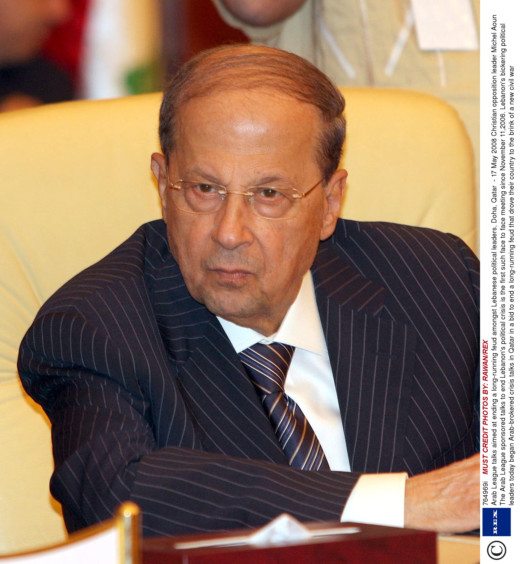
Beirut: Free Patriotic Movement leader General Michel Aoun has called on the state army to fight extremist groups on its eastern border and cooperate with the Syrian army.
“We call for cooperation between the Lebanese and Syrian armies to achieve this goal,” read a statement during the bloc’s recent meeting on Tuesday. Syria occupied Lebanon for over three decades which left a bitter taste in the mouths of many Lebanese. The FPM’s recent call was likely to be rejected by the majority of Lebanese who do not wish to repeat the experience of occupation. An Aoun supporter Wadi’ Mrad apologised for the bizzare demand by saying “sometimes the old man does not know what he is talking about. Maybe he has amnesia, but we have not forgotten, nor have we forgiven what the Syrians did to us.”
Jean Matar, a Lebanese Forces backer and architect summarised the view succinctly by saying, “never again”.
Meanwhile, in an equally bizarre development, the fugitive Sunni cleric Ahmad Al Asir is to be appointment as the leader of Daesh in Lebanon, according to a report published in the pro-March 14 Al Jumhuriyah daily.
Daesh apparently decided to proclaim the establishment of an Islamic emirate in Lebanon and planned to undertake military and security operations to consolidate its nascent power. It was unclear whether Daesh would deploy its fighters currently engaged in Syria to help achieve this goal in Lebanon, though the bombastic Al Asir—who fled his Sidon stronghold in June 2013 following bloody clashes with the Lebanese army, which Al Asir accuses of working with Hezbollah.
Despite the seemingly growing polarisation in Lebanese society as reflected by political figures, the majority of Lebanese reject sectarian policies.
In fact, extremist Christian and Muslim elements professed confessional rights, without any popular input. A new lexicon became part and parcel of daily vocabulary, crowned by the meaningless takfiri epithet that everyone applied to everyone else.
Lebanon continues to pay a heavy price for the ongoing civil war in Syria that regularly spills over. As a result, the Lebanese government remains in deadlock and for the 18th time on Wednesday, the Lebanese parliament failed to agree on a presidential candidate, a post which has been vacant since May of 2014.












